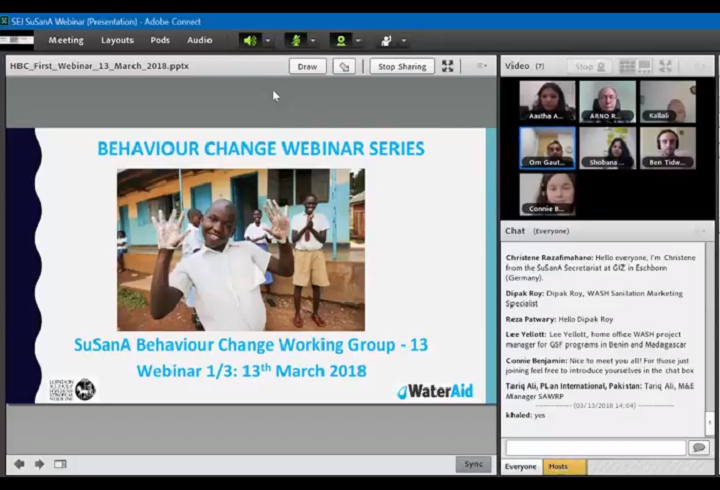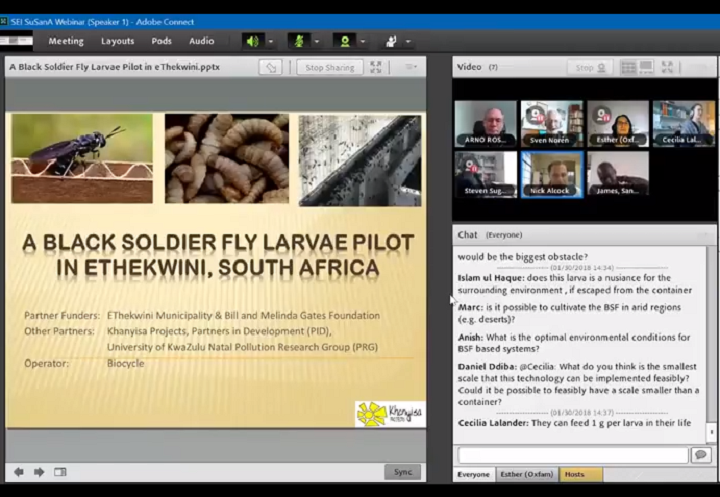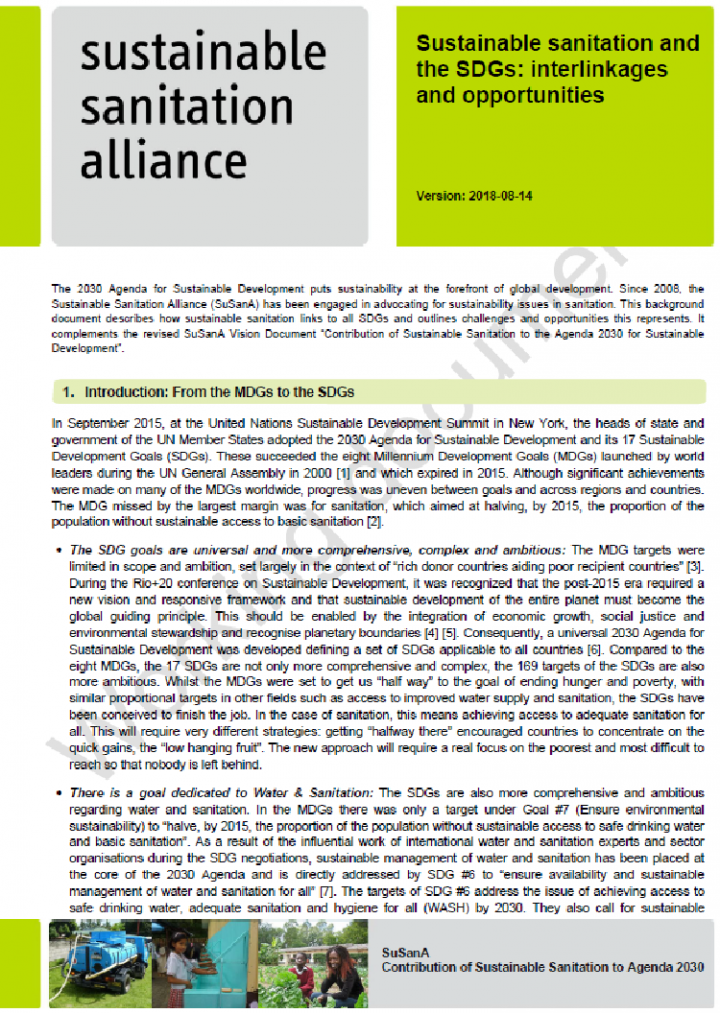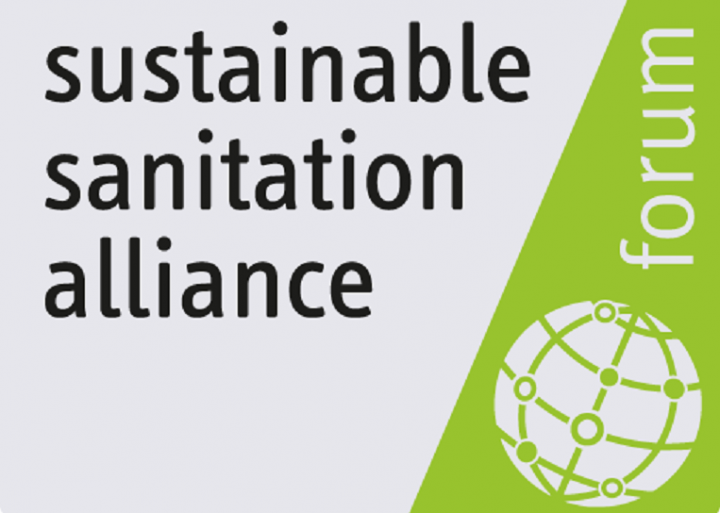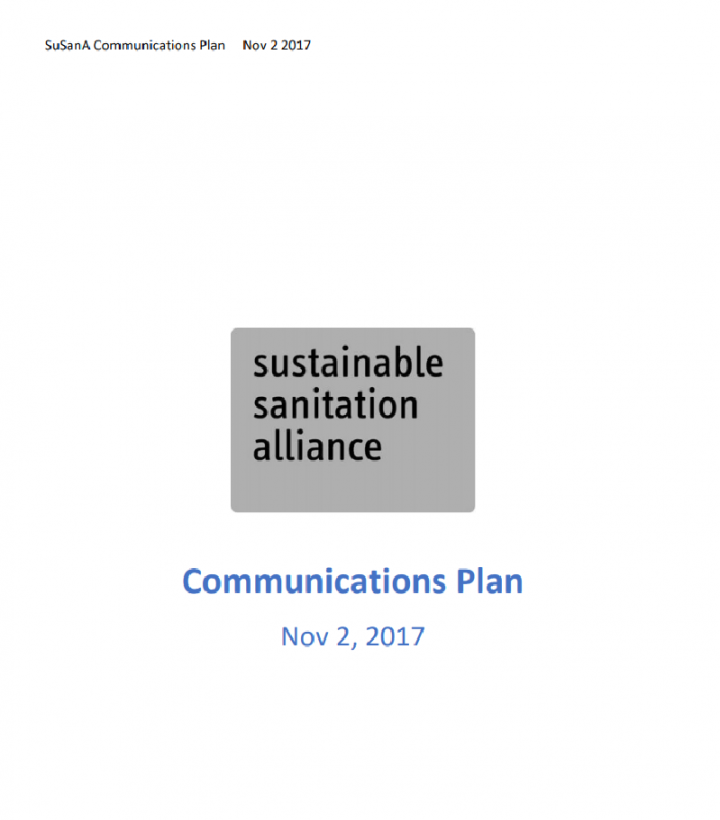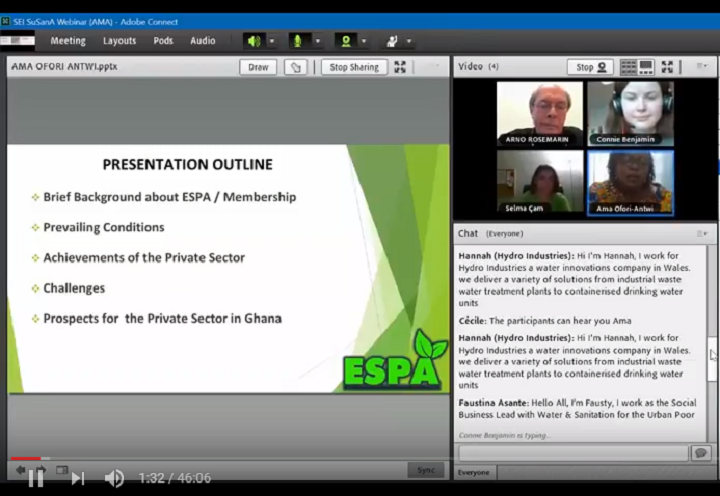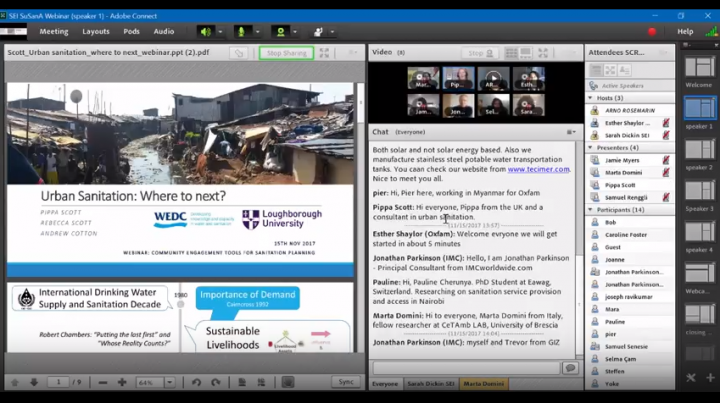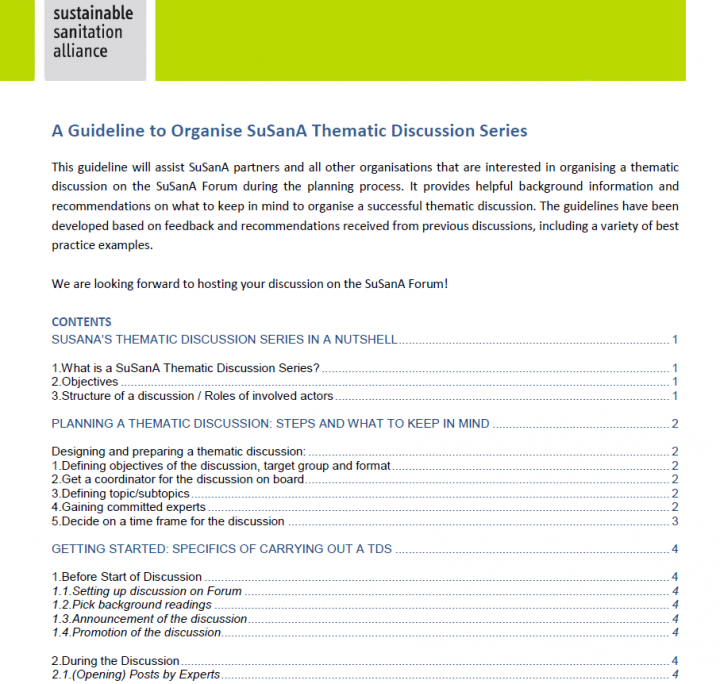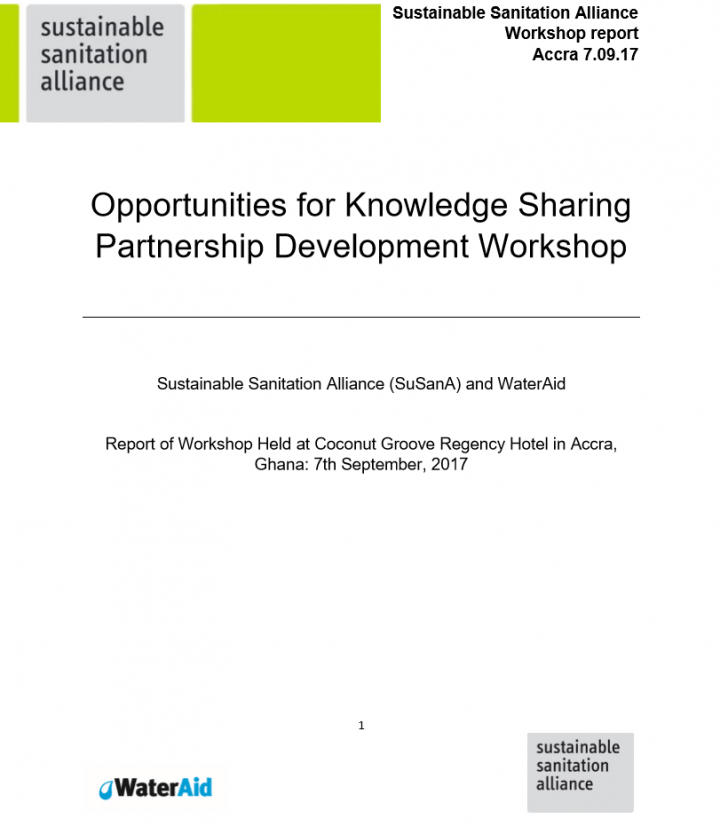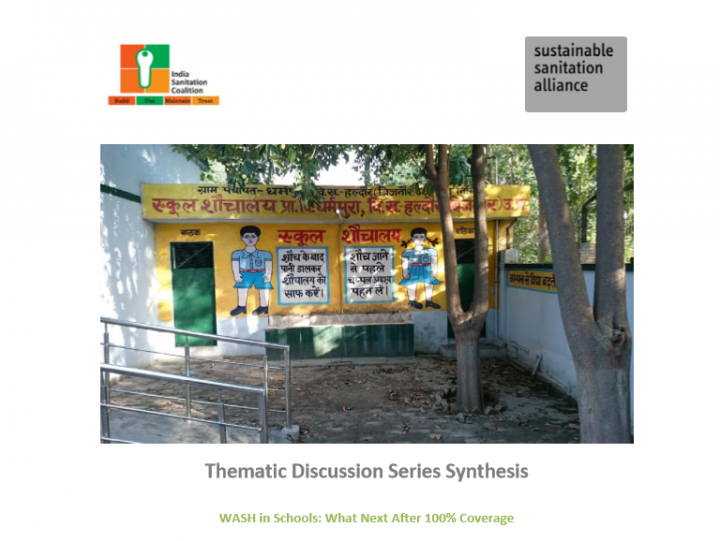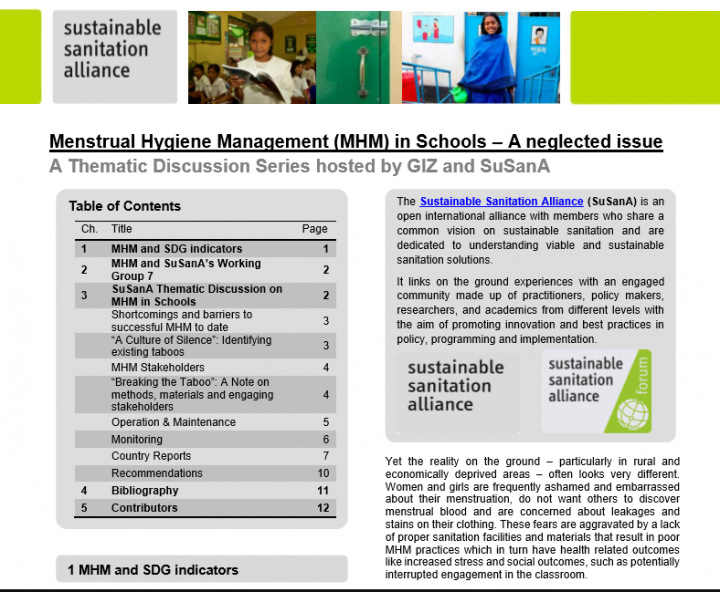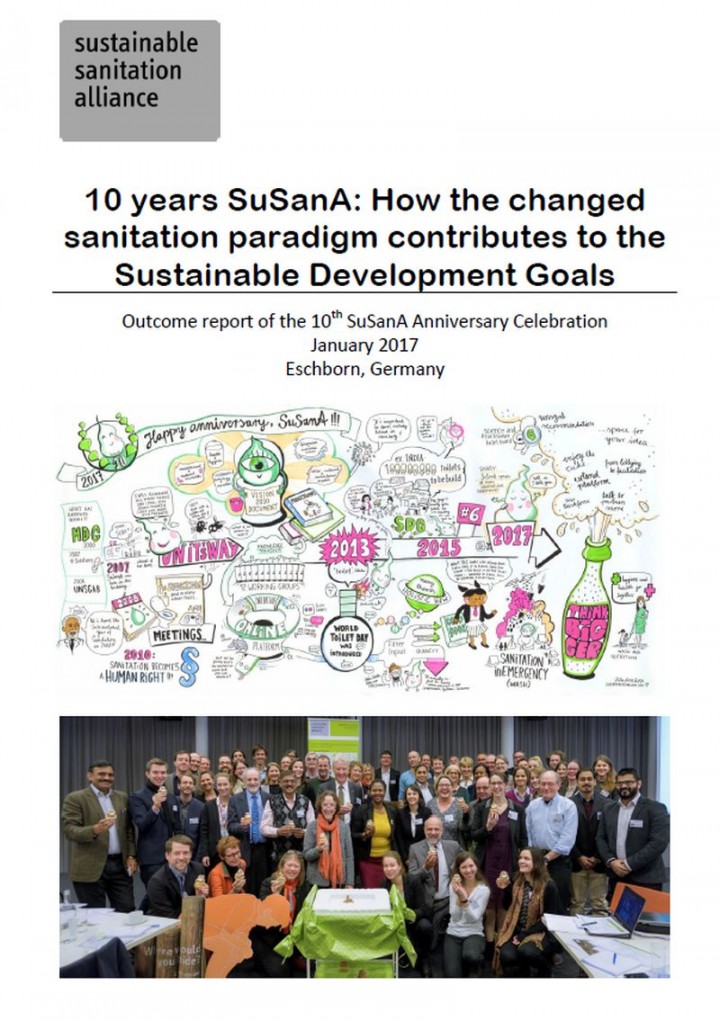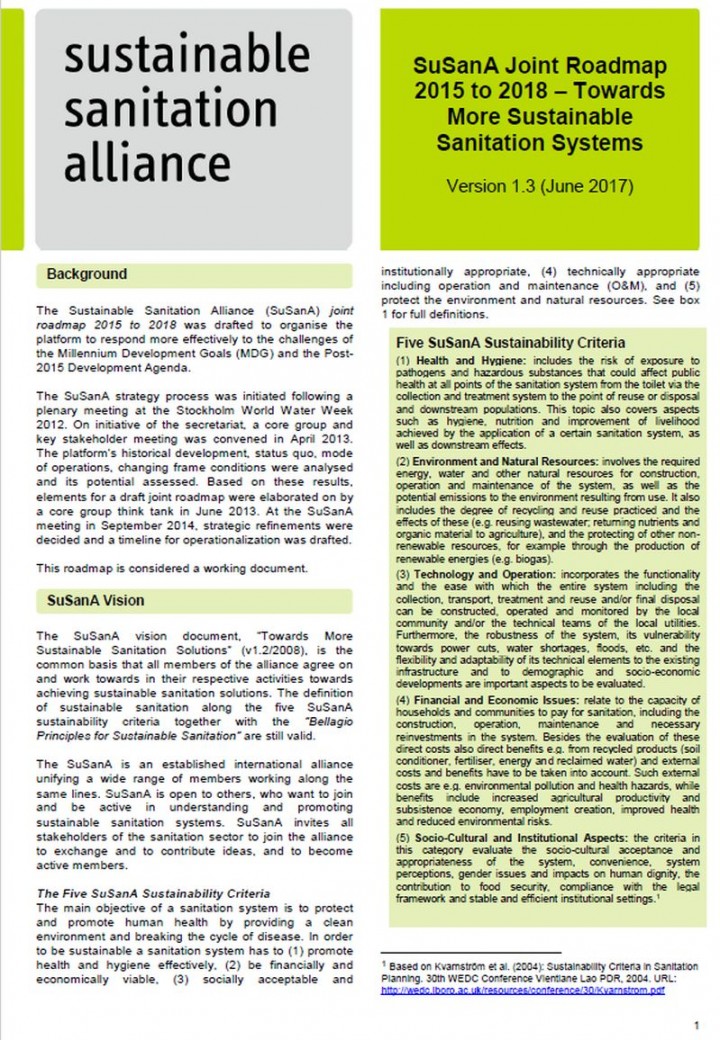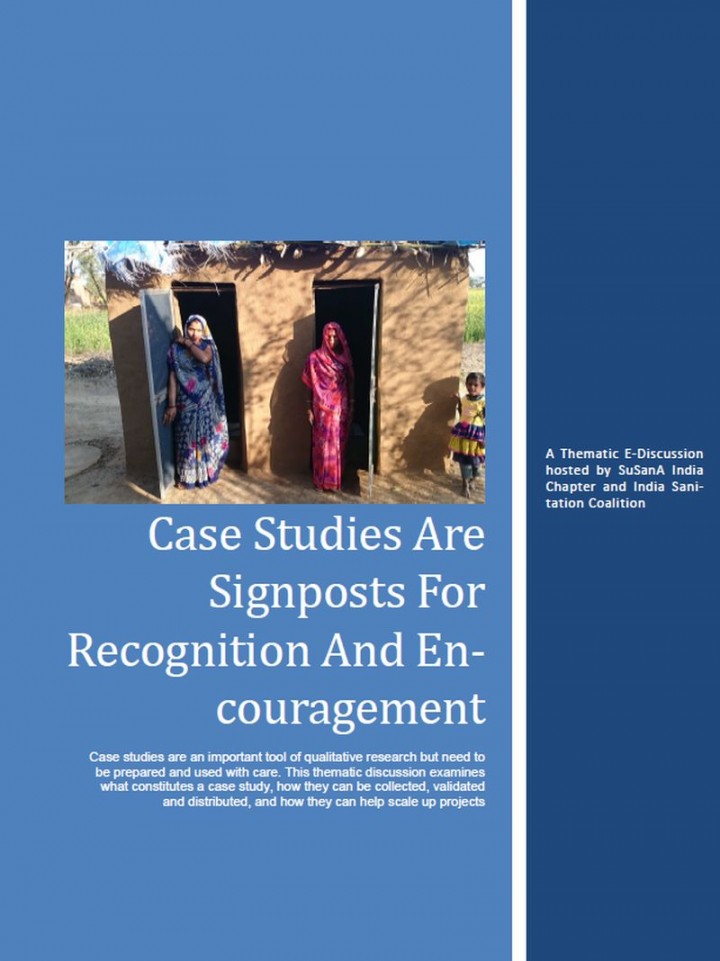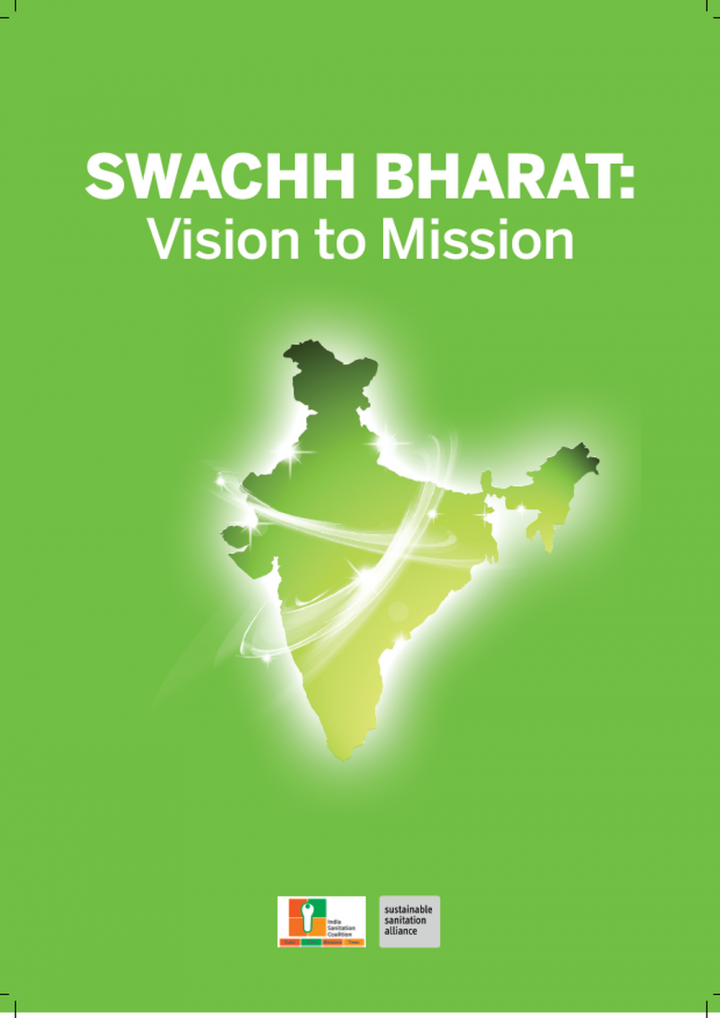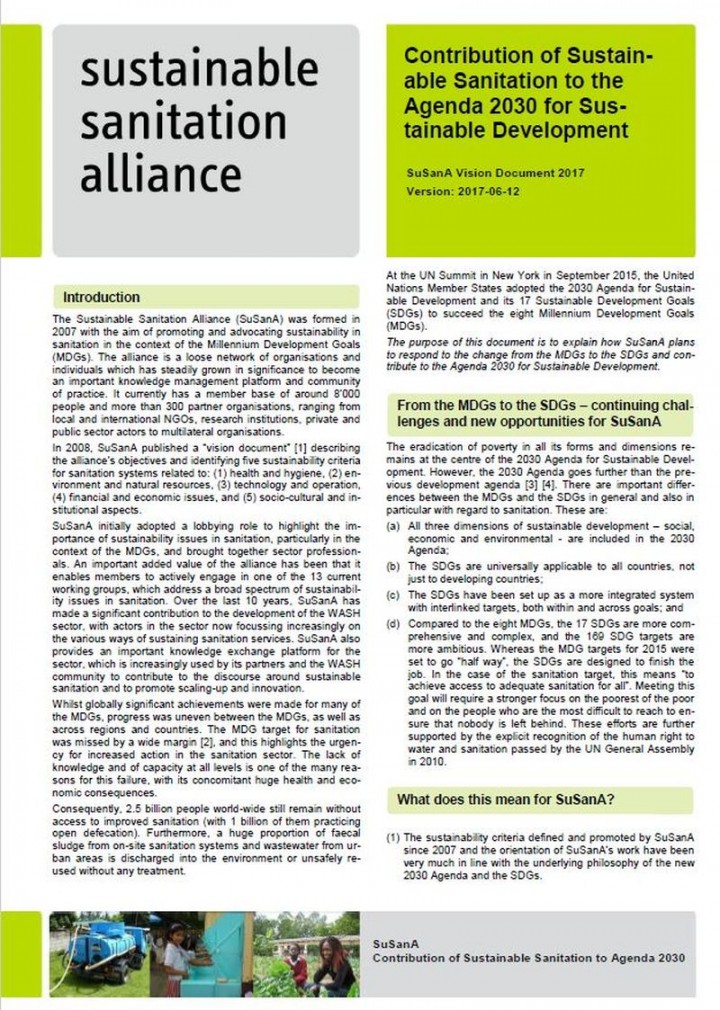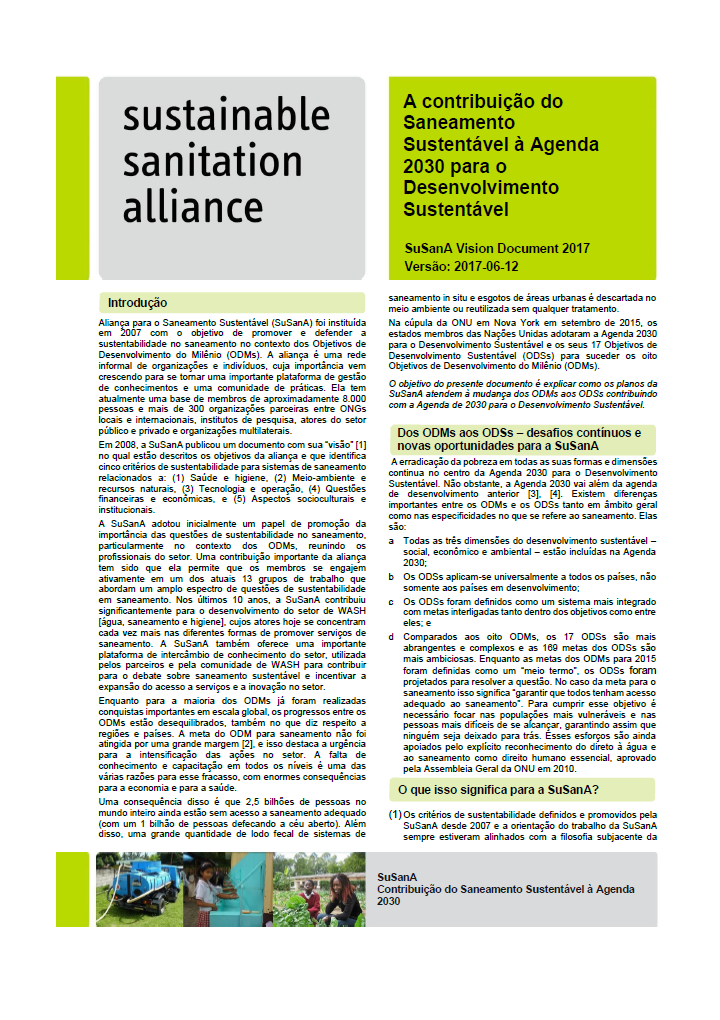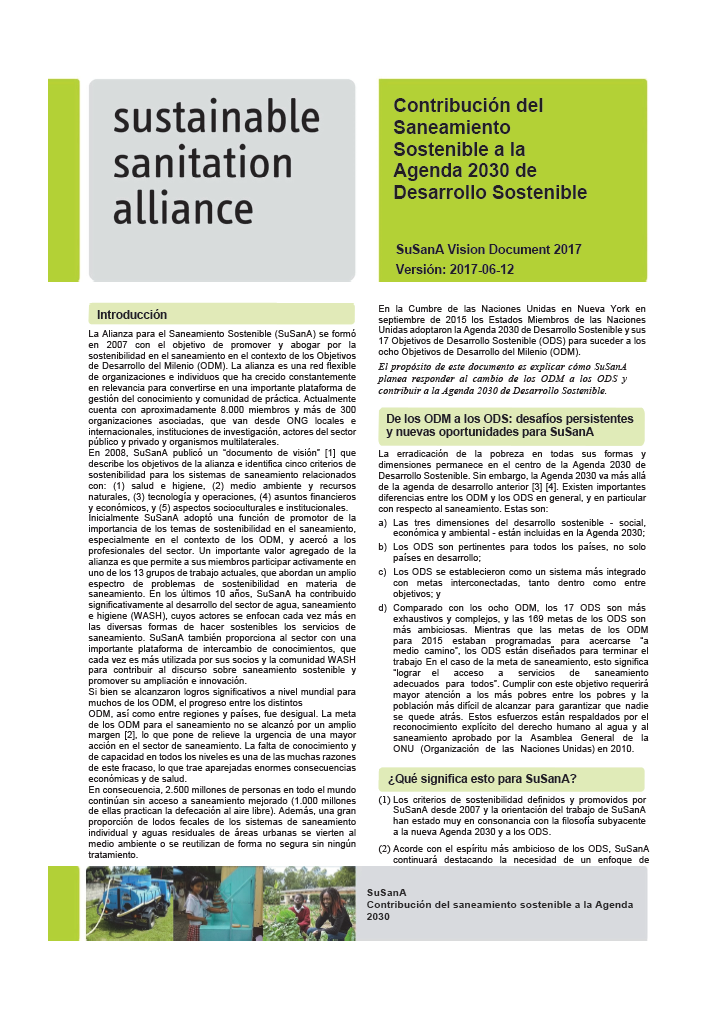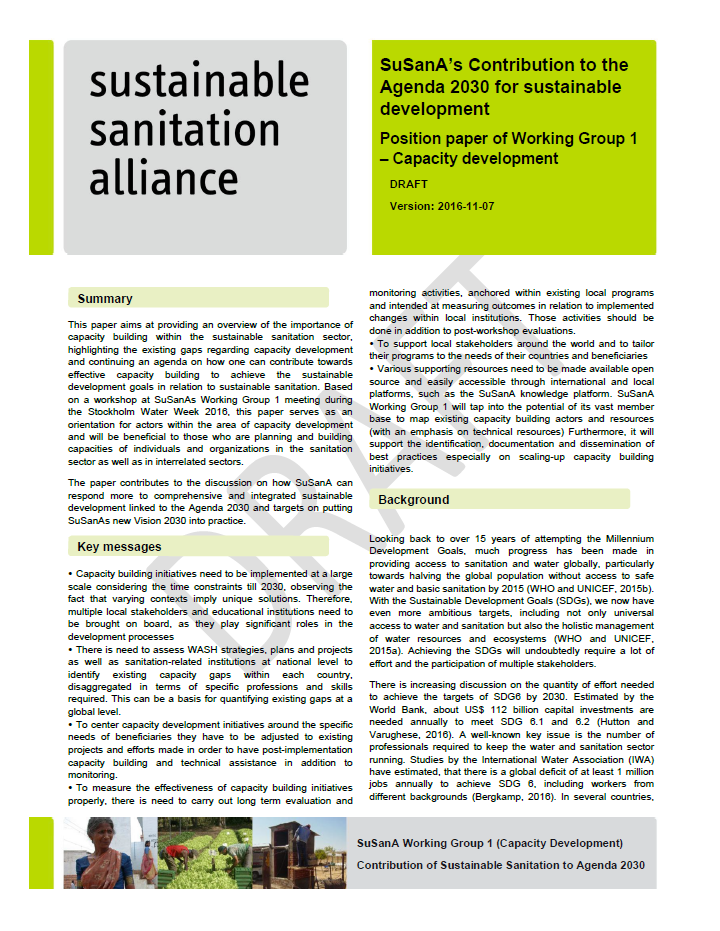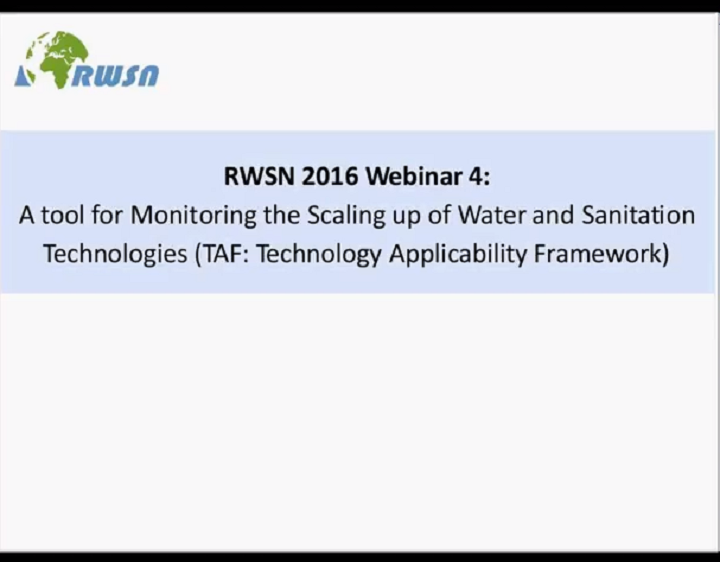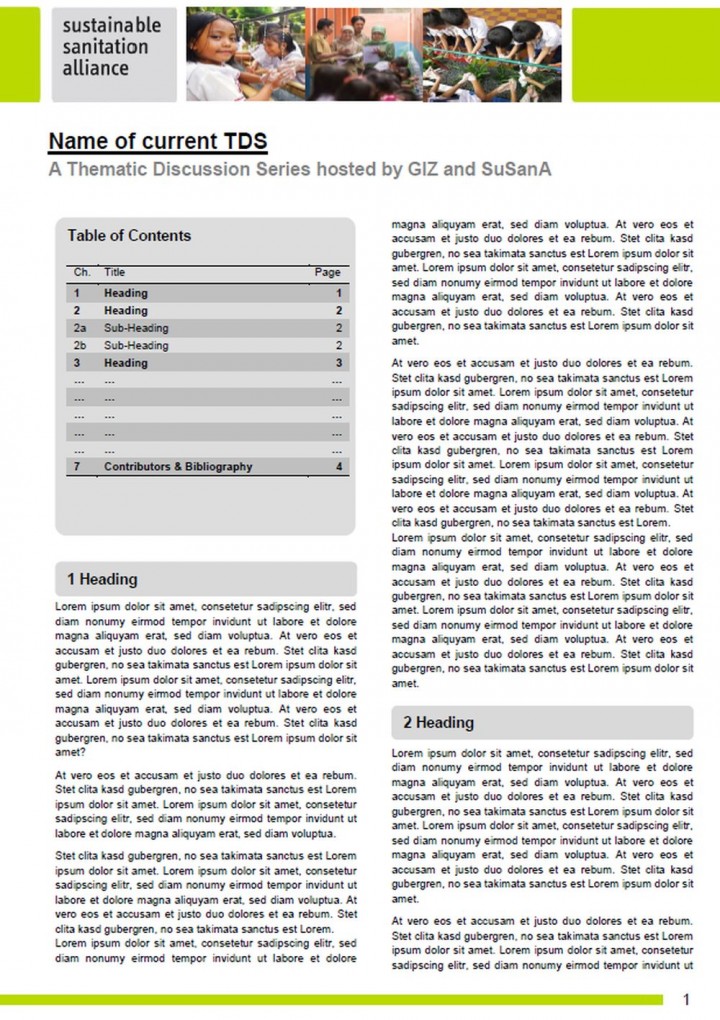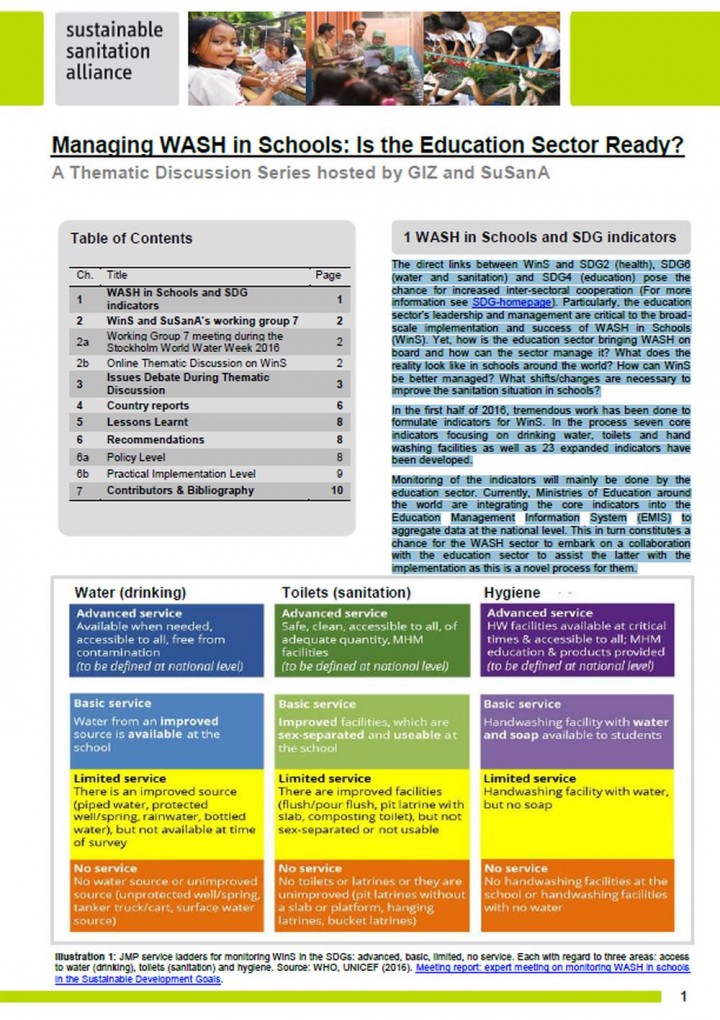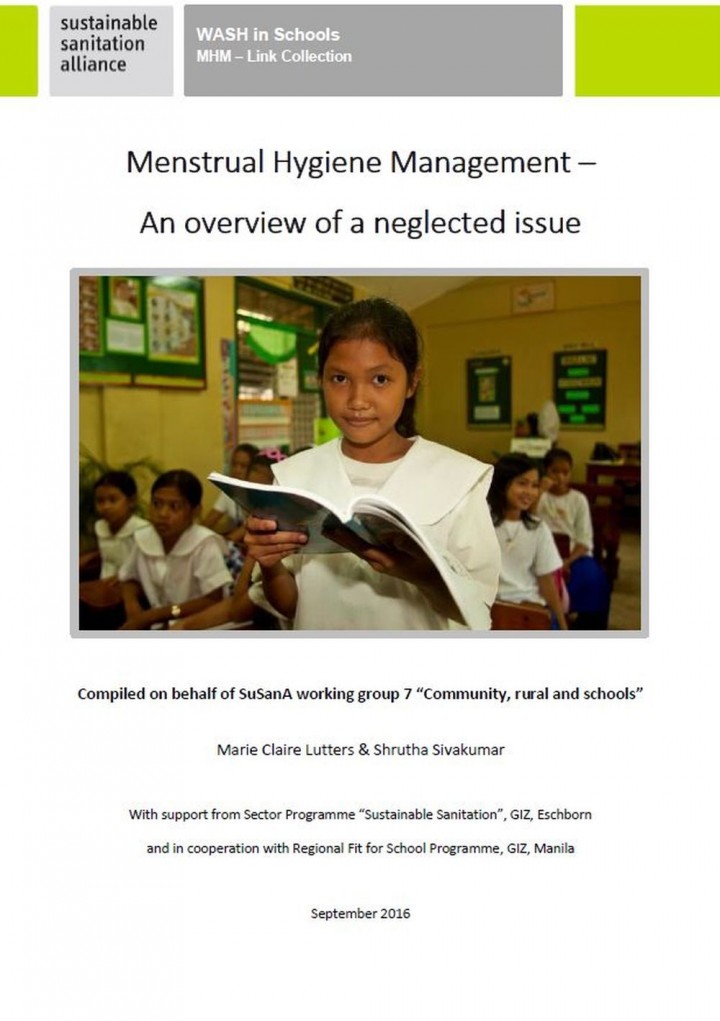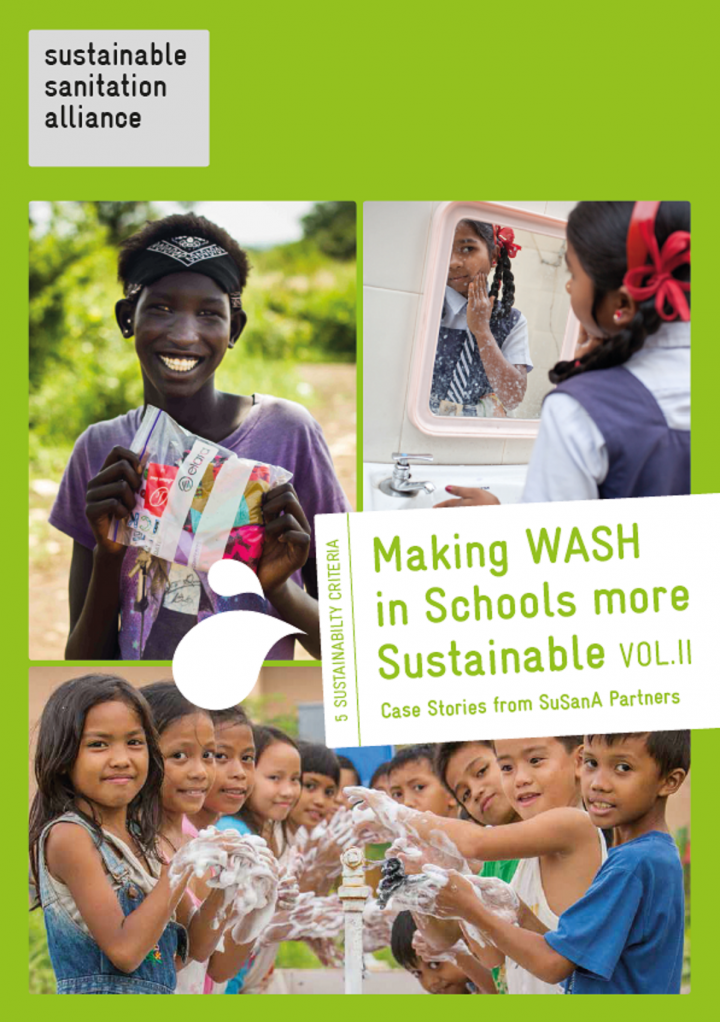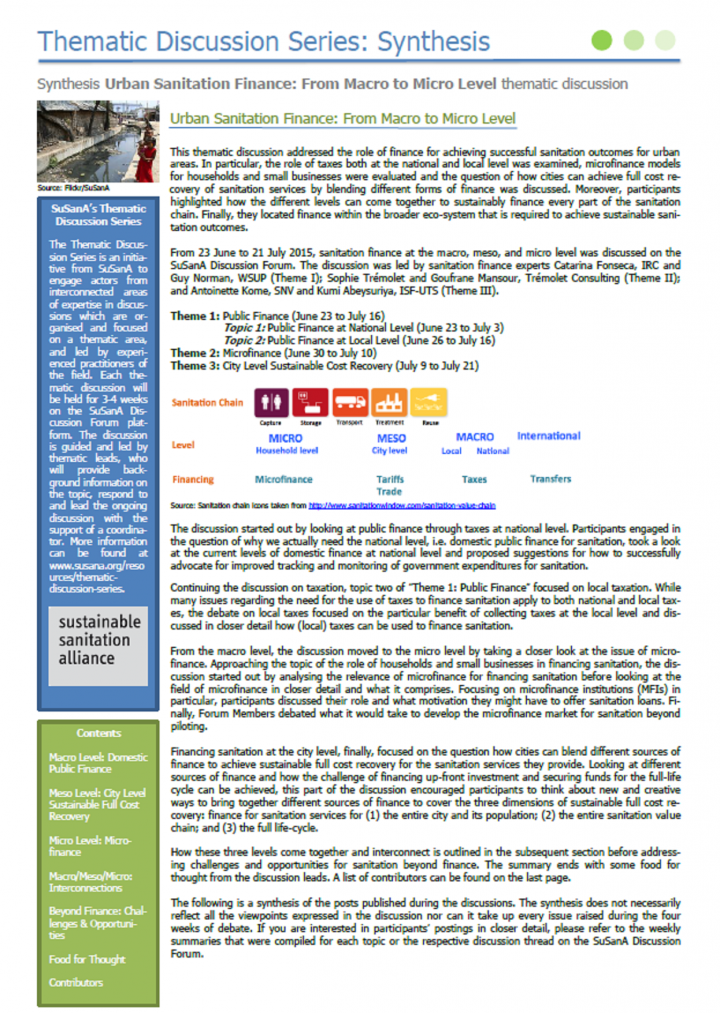Searching for information on Sanitation Workers?
The Sanitation Workers Knowledge + Learning Hub is the best source for all current news, trends, articles and updates on sanitation workers rights around the world.
The 2030 Agenda for Sustainable Development puts sustainability at the forefront of global development. Since 2008, the Sustainable Sanitation Alliance (SuSanA) has been engaged in advocating for sustainability issues in sanitation. This background document describes how sustainable sanitation links to all SDGs and outlines challenges and opportunities this represents. It complements the revised …
This SuSanA Communications Plan is based on the CAWST Sector Knowledge Management Study which was funded as part of a grant by the Bill & Melinda Gates Foundation (see link below).
The Communications Plan was written mainly by Arno Rosemarin and subsequently endorsed by the SuSanA secretariat and core group
It has 9 Appendices which are provided for download below.
The following were the …
This guideline will assist SuSanA partners and all other organisations that are interested in organising a thematic discussion on the SuSanA Forum during the planning process. It provides helpful background information and recommendations on what to keep in mind to organise a successful thematic discussion. The guidelines have been developed based on feedback and recommendations received from …
WaterAid UK, WaterAid Ghana, and the Sustainable Sanitation Alliance (SuSanA) platform in partnership with Ghana’s Ministry of Sanitation and Water Resources (MSWR) organised a one-day workshop in Accra, Ghana: 7th September, 2017 on opportunities for knowledge sharing partnership via the SuSanA platform.
From 4 – 23 September 2017, the India Santation Coalition under the umbrella of the SuSanA India Chapter organised a thematic online discussion about WASH in Schools in India.
The discussion examined how to improve WinS to a level where boys and girls have separate and adequate toilets, hand-washing facilities, hygiene is addressed in schools, and adolescent girls have usable …
Menstrual Hygiene Management (MHM) refers to the way in which women and girls deal with their menstruation. Girls usually menstruate for the first time between the age of 10 and 15. Learning about menstruation is thus vital for secondary school students, but it is not too early to raise awareness in elementary school. Given the number of people affected by MHM in some way or another, it is …
On the 17th of January 2017, the Sustainable Sanitation Alliance (SuSanA) celebrated its 10th anniversary at the GIZ headquarters in Eschborn, Germany. The celebration took place under the theme "10 years SuSanA: How the changed sanitation paradigm contributes to the Sustainable Development Goals".
During the event, SuSanA’s achievements, milestones, and impact in the sanitation sector were …
The Sustainable Sanitation Alliance (SuSanA) joint roadmap 2015 to 2018 was drafted to organise the platform to respond more effectively to the challenges of the Millennium Development Goals (MDG) and the Post-2015 Development Agenda.
The SuSanA strategy process was initiated following a plenary meeting at the Stockholm World Water Week 2012. On initiative of the secretariat, a core group and …
The India Sanitation Coalition (ISC) and Sustainable Sanitation Alliance (SuSanA) are pleased to present this report of the Swachh Bharat Mission (SBM), two and a half years after its launch. This document captures the ideas from ISC partner experiences, as well as e-discussions on the India Chapter of the SuSanA platform. It builds on these with secondary research to present the status of SBM in …
The Sustainable Sanitation Alliance (SuSanA) was formed in 2007 with the aim of promoting and lobbying for sustainability in sanitation in the context of the Millennium Development Goals. Over the last 10 years SuSanA has made a significant contribution to sector development, with sector actors now focussing increasingly on the sustainability of sanitation services in a variety of ways. …
This paper aims at providing an overview of the importance of capacity building within the sustainable sanitation sector, highlighting the existing gaps regarding capacity development and continuing an agenda on how one can contribute towards effective capacity building to achieve the sustainable development goals in relation to sustainable sanitation. Based on a workshop at SuSanAs Working Group …
The direct links of WinS to SDG3 (health), SDG4 (education) and SDG6 (water and sanitation) pose the chance for increased inter-sectoral cooperation. Thereby, the education sector’s leadership and management are critical to broad-scale implementation and success of WinS. Yet, how is the education sector taking WASH on board and how can the sector manage it? How does the reality look like in …
Globally 52% of the female population is of reproductive age, meaning approximately 1.9 billion women and adolescent girls menstruate each month for between two and seven days.
A first examination of the MHM global landscape: literature, academic studies, main actors, and debates, by the Sector Programme Sustainable Sanitation of the Gesellschaft für Internationale Zusammenarbeit (GIZ) was …
This publication is the second volume of "Making WASH in Schools ore Sustainable". Similar to Volume I, it showcases various approaches, both practical and innovative, to provide sustainable WASH solutions in schools around the world. The stories are not limited to the construction of water and sanitation systems but also show how these systems are operated and maintained through active …
This thematic discussion addressed the role of finance for achieving successful sanitation outcomes for urban areas. In particular, the role of taxes both at the national and local level was examined, microfinance models for households and small businesses were evaluated and the question of how cities can achieve full cost re-covery of sanitation services by blending different forms of finance …

